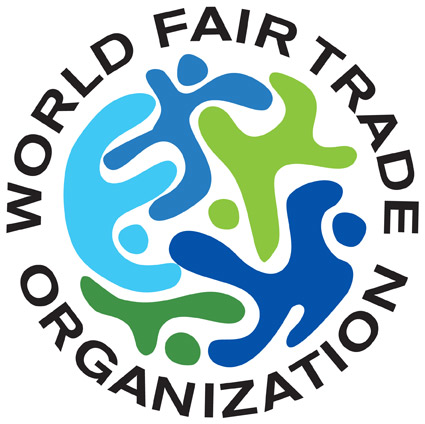At Maya Traditions, we work to empower indigenous women and their families by expanding access to national and international markets, increasing economic stability, and offering access to formal and informal educational opportunities. Our goal is to support women—our artisan partners—as they work to strengthen their families and their communities.
As we recognize Fair Trade Month and the International Day of the Rural Women on October 15th, we are proud to highlight our artisan partners, their stories, and our initiatives and partnerships that are making a difference and creating opportunity for indigenous women in Guatemala.
1. New Partnerships with Designers Promoting Creativity & Skill Development
In the past few years, we have expanded our collaboration and work with design partners. This has provided artisans the opportunity to be more creative and weave new designs. While the process has been a bit challenging, we have seen artisans excel at bringing to life pictures and sketches. We currently have a limited number of artisans who possess this skill, and are working to find funding to teach more artisans how to create samples, earn additional income, and transform pictures into woven treasures.
”I love creating new textiles, especially the challenge of creating new designs based on pictures. Weaving samples with Maya Traditions has helped me earn additional income to support my family, but it is not an easy task. Fellow members of my cooperative have tried but have not perfected this skill. I hope to teach other women in my cooperative how to make samples, which will provide them with new skill and additional money to support their families.” -Yolanda, CHUWILA Cooperative
2. Building Self-Esteem and Confidence Through Literacy
Reading and writing open doors of opportunity. Many of our artisan partners did not have the opportunity to attend school when they were younger. Based on feedback from communities, we began a partnership with A Heart for Guatemala. Three years later, we are still coordinating annual literacy trainings, ensuring our artisan partners have the opportunity to improve their literacy skills. With literacy, we’ve seen our artisans grow immensely in confidence.
”At the beginning of the literacy workshop, I was nervous and felt that I could not write on the blackboard in front of the whole class. But now I have confidence and I can identify letters and words, I am proud of myself.” Sebastiana, CHUWILA Cooperative
3. Investing in Reproductive Rights and Sexual Health Training with Local Midwives
“Cultural practices, lack of education, endemic violence, and the hold of the Catholic church over decisions on reproductive health make girls in Guatemala easy prey for abuse and vulnerable to early pregnancy’’ (The Guardian 2015). We’re working to change this reality by partnering with an association of local healers. In the association, there are many midwives who work in rural communities. This year we partnered with WINGS to create opportunities for these midwives to strengthen their knowledge and learn more about reproductive rights and family planning. Coming from over five communities, these midwives will have an impact on hundreds of women’s lives. Read more here.
“The workshop was extremely helpful for us. We learned about different methods of birth control that we didn’t know before. Family planning is a big taboo in my community. It is in the woman’s destiny how many children she will have. But working with women in my community, I understand the high need of family planning and now am able to provide profound advice on different methods. It’s important that we are able to provide as much support as possible to these women, to ensure that there is no misuse of contraceptives’’ Elena, midwife from San Pedro La Laguna
4. Supporting Educational Opportunities for Indigenous Girls and Young Women
Indigenous Maya girls in Guatemala are among the country’s most disadvantaged group with extremely limited schooling, early marriage, frequent childbearing, and chronic poverty. We support our artisan partners and their children with educational scholarships to offset the cost of education. We also provide informal educational opportunities including trainings year-long, mentoring, and an annual community service initiative. By creating opportunities for indigenous youth–especially young girls–we have seen our students excel academically and personally.
”My goal is to be a graduate in social work as I want to improve the lives of those who live in rural areas. I am driven to help this population that does not have a voice in Guatemala.” -Carmen, student from Chirijox
5. Supporting Indigenous Maya Women in their Traditional Livelihoods
In Guatemala, many indigenous women and men leave their communities in search of opportunity. Many will travel to Guatemala City, others to the United States, in search of work and a steady income to support their family. We’ve seen this increasingly common migration occur year after year, changing family and community dynamics. Maya Traditions partners with indigenous female artisans to create opportunities based on their traditional skill in their communities–directly supporting and empowering the indigenous woman. Our artisan partners work from their home, creating textiles rooted in their culture. They are able to actively preserve and promote their heritage and identity as an indigenous woman. In a normal day, our artisan partners weave, take care of their children, prepare breakfast, lunch, and dinner, tend to their crops, and clean their homes. They create high-quality textiles to be purchased across the world and are paid a fair price for their work–all without leaving the comfort of their home.
”To me weaving means opportunity. Sharing my art has helped me and my community move forward.” -Pascuala, Artesana Nawal Ja’ Cooperative

Member of the
World Fair Trade Organization